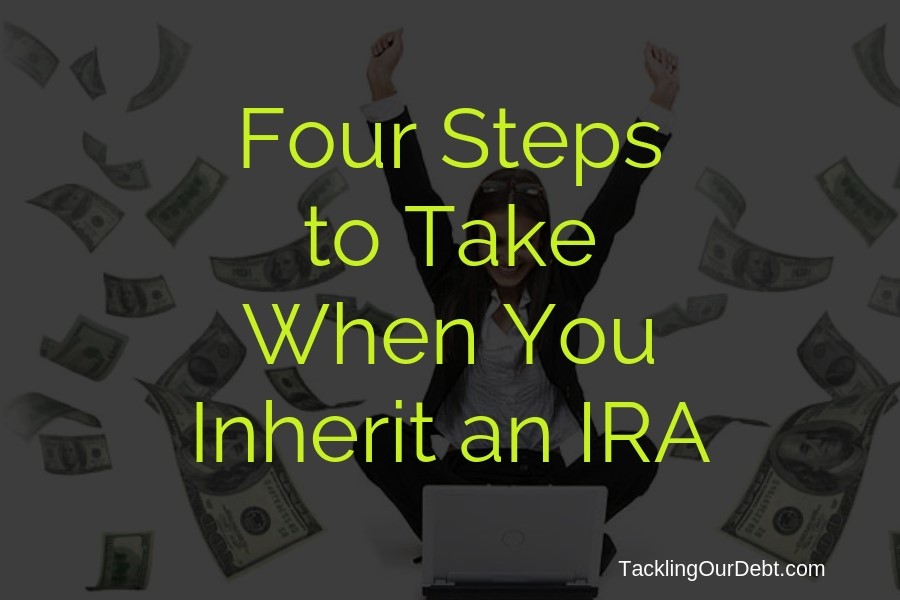Individuals who inherit an IRA from someone other than their spouse need to take care. Often, people in this situation immediately cash out the IRA only to learn they must pay a healthy tax on the funds. Fortunately, a person has other options. Following are four steps a person may take when they inherit an IRA to maximize the funds while paying the least income tax possible.
Stop and Take a Breath
Don’t act rashly. Spend some time learning about the various options available to you upon inheriting an IRA before making any decisions. This helps to ensure you understand the tax implications of each option and which selection will provide you with the maximum withdrawal.
Once the IRA has been cashed in, nothing can be done to recoup the funds that were paid to the IRS, so take a breath before you take any action.
Consider Your Life Expectancy
Heirs may find they are able to take the required minimum distribution and leave the rest in the account to continue to grow tax-deferred. Advisors refer to this as a stretch IRA and often advise young individuals to benefit from this option.
Doing so allows the heir to boost his or her retirement account for the future. Furthermore, in the event more than the required minimum distribution is needed in any given year, the funds may be withdrawn.
Be aware that any funds withdrawn are taxed that same year and take this into consideration when determining if this is the best option.
Cash Out the IRA Immediately
This does remain an option for individuals who wish to access the funds immediately. However, the funds will be taxed the same year also. This can not only significantly impact the amount of money the heir will receive, but he or she must also be able to pay the income tax bill when it comes due.
Many people fail to set aside enough funds for this purpose and find they must scramble to make the required payment to the IRS.
Don’t allow this to happen, as nobody wants to find out at the last minute that they owe a lot of money for taxes.
Cash Out the IRA Within Five Years
Another option is to cash out the IRA within five years of receiving it. Again, the funds will be taxed when they are withdrawn and this can leave the heir with a large tax bill. This depends on the size of the IRA at the time it is inherited.
In fact, a person may find they lose up to a quarter of the funds when the IRA is cashed out immediately or over a five year period.
For this reason, many people opt to take the required minimum distribution each year and allow the account to grow in size.
The best way to avoid issues when inheriting an IRA from someone other than a spouse is to mark December 31 of the year following the IRA owner’s demise on the calendar. This ensures the deadline is not missed and the heir retains the most control over the funds and how they are used. In the event this deadline is missed, the IRA beneficiary must withdraw everything in the account within five years. Speak to a financial advisor to determine the best course of action. Although there will be a fee for doing so, it will actually save you money in the long run.





